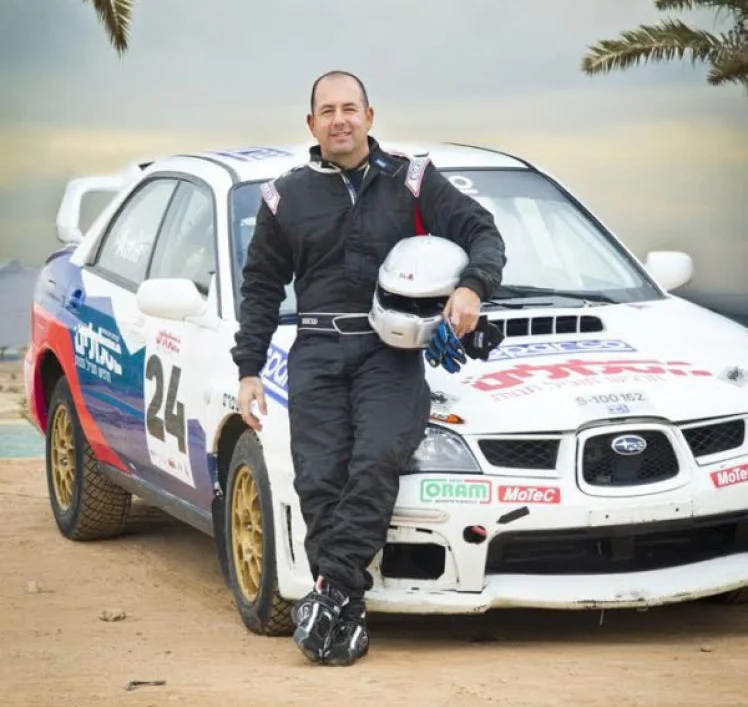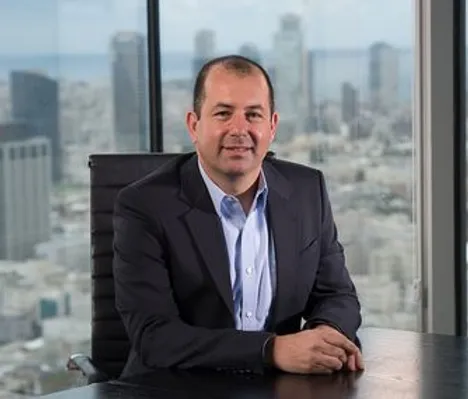"Interview with Amir Bramly for Forbes"
Entrepreneur Amir Bramly, who added today the former Deputy Foreign Minister Danny Ayalon to the Rubicon group, which he founded and brought to a 1 billion NIS worth, has a lot to say about the Israeli leadership. In a particularly open interview, he explains why the government has an interest in maintaining the state of the Israeli economy, and how a few simple steps could change everything.
Gil Karie

“Let's start from the end”, I ask Amir Bramly at the opening of the interview, just before we dive into an in-depth conversation about his solidified views on the lack of leadership in the country, the state of the Israeli economy, and the steps he believes can bring forth unprecedented growth.
Where would you like to be in a year from today? And Bramly replies immediately, straight from the gut: "In the exact same place. If I can maintain my position today and the mix between my work life and my personal life, I will be very pleased".
Bramly, 38, born in Acre and grew up "without a silver spoon in his mouth", heads the Rubicon Group, one of the strongest holding groups in the economy, which he founded in 2006. His fortune is estimated at hundreds of millions of NIS.
Rubicon's strategy – numbering no less than 40 companies in diverse fields – is to invest in small and medium-sized businesses that are on the verge of a breakthrough and significant growth. The company's investment portfolio spans across many fields – restaurants, startups, insurance & finance companies, as well as tourism and leisure businesses. Among the businesses it owns, you can find the insurance comparison website Wobi, the home waste management company WTP, Nana Restaurant in Tel Aviv, the motorsports company Maslulim, Agroecology, Hukok beach in the Sea of Galilee, and Fixsale.
Of the company's intentions to expand and strengthen its operations vis-à-vis the global market, one may learn from the new and sparkling procurement in the form of former Deputy Foreign Minister Danny Ayalon, announced today. Ayalon will serve as a special adviser concerning international business for Bramly and will also be responsible for establishing business collaborations with foreign investors, international funds, and companies from Europe and North America.
The flight is on us
But contrary to his personal condition, as far as the economic, political, and social status in Israel is concerned, Bramly would be very happy to see change, and soon. The problem, he said, is that such a change is not in sight. "I don’t t think we’re facing a crisis in the economy. On the contrary, but that is the result of stagnation. The economy is relatively stable – there’s plenty of entrepreneurship, the exits are going on, and real estate prices are not going to drop. All in all, we remain in a status quo state. Some ups, some downs, but no real change. This is the result of the economic leadership in the country, which simply does not exist. "
The status quo, as Bramly predicts, may sound like a rather optimistic scenario, surely in light of the negative growth recorded after Operation Protective Edge (2014). But Bramly refuses to be impressed with stability – he believes that with a few simple steps, the economy can take off and bring tremendous growth in Israel. The problem, he said, is that the leadership in recent years simply had no interest in bringing about economic growth. On the contrary – it had an interest in preserving the economic state in Israel.
Why would leaders choose not to promote growth?
"The focus is completely political. A weak middle-class is convenient and easy to control. It is more easily swayed, it is less noisy, it has constraints and is busy looking after its affairs. If there is real economic well-being to be had here, it will have a lot of impact on the government".
"There was a social protest", he continues, "people took to the streets. In the end, the spotlights were turned towards the prices of Cottage cheese and Milky. The people are being disparaged. After all, the point is not a few dozen Agorot with the Milky’s price. The heart of the matter is the economic welfare, the horizon of opportunities for young people. But no one talks about that, so we cling to what we can. It’s much easier to confine the hardships to the Milky and the Cottage. But it goes far beyond that".







The first change Bramly would like to see – and as far as he is concerned, the sooner, the better – is the state's attitude towards tourism. The matter is of great importance to him seeing as he is invested in several businesses currently active in the field, attests to being a travel enthusiast, and most importantly – he believes that the field, which is currently being neglected, should be one of the main, if not the most significant growth engines in the economy. "Increasing taxes can increase state revenues, but it does not improve the state of the economy. It is a self-sustaining economy. A true generator for growth is money coming from outside: the high-tech industry, the defense industry, agricultural exports, and, of course, money coming from tourism – these are the foundations of the economy.
So how do you attract those millions of tourists? Bramly has an intriguing idea; some would say revolutionary: offer every tourist who arrives in Israel for at least two weeks airfare at the expense of the state. From anywhere in the world. And when Bramly suggests an idea, he’s not just blowing a balloon – he has already examined the topic, calculated costs, and tested the feasibility. "We did a calculation and found that the VAT alone paid by a tourist in the country during two weeks would be equivalent to the cost of his airfare. And that's before we even mentioned the new funds the tourists will bring to the economy. "